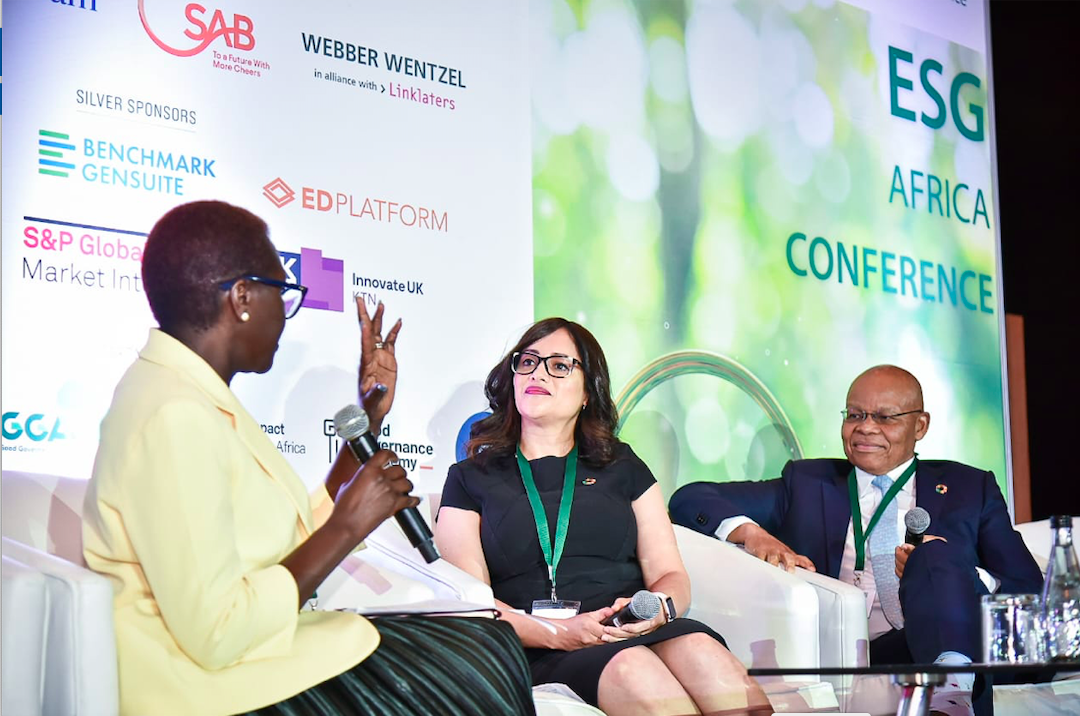“A proactive, collective, and strategic approach to ESG is essential if African nations are to attract investment and ensure sustainable economic growth,” says Joshua Low, director at ESG Africa Events, the organisers of the ESG Africa Conference, which, this year, is expected to welcome over 450 delegates from more than 12 countries, and 60 leading local and international speakers.
The organisers of the conference are calling for action, evident in the main conference theme, Moving From Performance Monitoring to Impact. “This emphasises the need for a shift from merely discussing the significance of ESG/sustainability to focusing on the practical implementation of initiatives that drive impact throughout the continent,” says Low.
“Consequently, all sessions at this year’s conference will feature case study presentations and table discussions to assist participants in putting into practice the ideas presented during the two-day event. While ESG is not a new concept, there is rising recognition of the advantages of its underlying principles and the value they bring to both government and the private sector when approached more deliberately.”

This does, however, require collaboration between African nations, and ESG is viewed as a catalyst in fostering such unity. Low highlights that the collective embrace of ESG practices allows countries to share challenges and inspire one another towards Africa’s more prosperous and resilient future.
One of the prominent challenges is the impact of climate change and environmental degradation on vulnerable communities, wildlife and ecosystems. This necessitates a strong focus on sustainable practices to mitigate these effects.
Additionally, social issues such as poverty, inequality and lack of access to basic services present significant hurdles in achieving sustainable development goals.
Ensuring responsible governance and ethical business practices in regions with varying political stability is another key challenge. Moreover, promoting diversity, inclusion and gender equality within organisations remains a critical issue in the African context. “Addressing these unique ESG challenges in Africa requires a multifaceted approach that considers the continent’s diverse socio-economic landscape and environmental factors,” says Low.
There is also a noticeable increase in ESG and climate-related regulations globally. These regulations are becoming more stringent as stakeholders – including governments, investors and consumers – emphasise the importance of sustainability and responsible business practices.

“The impact of these regulations on companies operating in Africa will be substantial,” says Low. “Firstly, companies will need to adapt their operations to comply with these regulations, which may involve upgrading processes, investing in cleaner technologies, and enhancing transparency in reporting their ESG performance. Failure to meet these regulatory requirements could result in financial penalties, reputational damage and loss of market share.
“Secondly, companies that proactively embrace ESG principles and integrate sustainable practices into their business models may gain a competitive advantage. They are likely to attract environmentally conscious investors, improve stakeholder trust, and enhance their brand reputation in the long term. They could also have a better chance of attracting and keeping talent.”
Low warns that as regulations become more globally aligned, companies operating in Africa may face pressure to meet these international standards in order to access global markets, which forces a shift towards more sustainable practices.
“Yes, rising ESG and climate-related regulations present both challenges and opportunities for companies in Africa, but there is sufficient research to show that taking an intentional approach to embedding the principles underlying ESG drives growth, enhances resilience, and contributes to the long-term success of businesses in the region,” explains Low.
Further benefits include enhancing transparency, combating corruption and a reduction of waste. Institutions are better able to build trust and foster a culture of accountability, which unites nations in their pursuit of progress and growth.

“We have created an ESG ‘Community of Practice’, which includes a series of monthly events and networking sessions that allow people with an interest in ESG and sustainability to learn, network and grow throughout the year. People can visit our website at www.esgafricaconference.com to join this community and be part of a movement that is driving positive change across Africa.”
The ESG Africa Conference is endorsed by organisations such as the GRI, BUSA, Good Governance Academy, Good Governance Africa, National Business Initiative, UN Global Compact South Africa and YES, among others, which are equally passionate about safeguarding the environment, protecting communities and promoting ethical and sustainable practices.
“Ultimately, the integration of ESG principles across African nations will attract responsible investments, improve access to capital and stimulate economic growth,” says Low. “Sharing resources, information, best practice case studies and innovative solutions, alongside a commitment to sustainability, will not only strengthen the region’s resilience but also pave the way for investments and partnerships that benefit the continent as a whole.”
Contact details
+27 (0)74 703 6650



